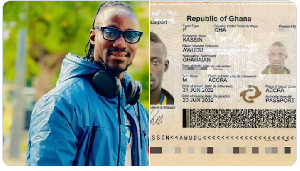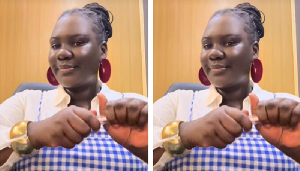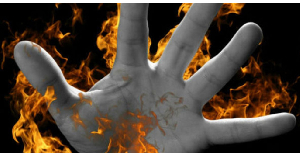If Michael Portillo, the ex-Tory Cabinet Minister, has anything to regret for not challenging John Major in the 1995 Conservative party leadership election, it is the distasteful thought of not daring to paint a stroke of his name on the canvass of British politics. Perhaps if he did, he would have succeeded in making a delicious farce of his political career. Even so, he would have lost nothing, because politics is not like algebra, where only logical arguments are represented; politics is that rare science that rests on the laughable paradox that the voter’s choice is the best. Today, Mr Portillo is urging a very young Environment secretary, David Miliband, to challenge the Chancellor of the Exchequer, Gordon Brown, who is at once the soaraway favourite in the Labour party leadership contest in the UK.
One of the evils of participatory democracy that we may have to learn to live with is that it encourages contests and numbers, and sometimes too many numbers. For the umpteenth time, and may be not the last, I would reiterate the concern that most Ghanaian voters have about the number of gentlemen vying for the flagbearership of the ruling NNP. The Statesman is a credible newspaper, so I am compelled to believe in their prediction that most of the 19 presidential aspirants will fall by the way side, leaving 9 men or less for congress to decide on in December. It is predictable that the Statesman’s Akufo-Addo will be among the last nine. It is also expected that ex Finance minister Yaw Osafo Maafo and former NEPAD Minister Kofi Konadu Apraku, who happen to be on this week’s ‘what is good’ menu, are likely to keep their presidential dreams flaming to the end.
Recently, I met Yaw Osafo Maafo at a departmental store on London’s Oxford Street. He was walking with a very nice young lady who bore a striking resemblance to him. Ghanaian gossip salesgirls that I later spoke to told me the bimbo was Osafo Maafo’s daughter. Being a notorious window shopper, I had a lot of time to waste. I walked close to them and murmured a faint hello to the former minister. He could instantly tell from my double-barrelled nose that I was Ghanaian. His face lit up as he asked me how London was treating me. He seemed ready for an interview if I had my recorder ready. He looked quite charming and very much his down to earth self. I looked intently into his daughter’s eyes and bid him adieu.
Yaw was a remarkable improvement on the PNDC’s Kofi Totobi Kwakye, who tried unsuccessfully to hide his face when I met him on a bus from Greenford to Wembley in north London. The former JJ buddy persistently ignored my greetings and shamelessly bent his head on his walking staff, which he had pitifully clung unto like a widowed octogenarian in a war torn Middle Eastern country. Fellow freelance writer, Efua Akwanowa, has also met Jake Obetsebi Lamptey at an opticians store in London. She reported good tidings from the encounter. Good Sir.
I haven’t met Dr Kofi Apraku before, but I knew he had a constituency on Legon campus as far back as 2001. It is surprising that he still hasn’t worked his manifesto into a book, because he started marketing his presidential dreams quite early. We knew the finance portfolio was his bingo until President Kufour decided the trade ministry will serve him better. Congress found him impressive the last time, but they decided to remain unimpressionable, because JA Kufour had an exciting charismatic appeal. Will Congress fall for Apraku’s gorgeous accent this time, or a political dinosaur is finally facing a gradual extinction? The Teresias of Ghanaian politics: those who can see into the seeds of time and tell which political seed will germinate to fruition and those that will wither, have predicted that a minister-aspirant (a term coined by the Statesman) rather than an ex-minister-aspirant, will be the ruling party’s presidential candidate. If that happens, the political future of the former ministers, and that of aspirants who never held any portfolios in the Kufour government will be as misty as the middle income prospects of the West African country itself. For, there has been very little talk of camps merging or working together, even though some of them have realistically very bleak prospects. But the good thing about belonging to an old tradition is that those who helped in the cooking usually have their seats reserved at the dining table.
In this NNP flagbearership race, the minister-aspirants are as good as the X-factors, and even those who appear to be making an injury time bid. The dividing lines are not clear; so is the electoral fate of the eventual flagbearer. Whoever gets the nod of congress has a lot of work to do to be president. At least, people must be convinced that their votes will not be counted in darkness.
What would a Yaw Osafo Maafo presidency hold for Ghana? If a politician creditably manages the finances of a West African country without the usual queries, that person is a bit of a hero. If people doubted the credibility of the organisation that voted Osafo Maafo the best finance minister in Africa years ago, at least nobody doubted the man’s professional acumen. He strikes you at once as a hardworking person; a dutiful workaholic, who has brute strength and energy to soldier through difficult tasks.
He was said to have controlled government expenditure and checked inflation quite well. Even though this may not have translated into money in people’s pockets, we didn’t hear much of the old Kwesi Botchwey joke, where folks created a story that his mother summoned him before family elders and advised him to give up the finance job, because Ghanaians complained too much of dry pockets. Like Kwesi, Yaw appeared to have done a good job as finance minister.
If his tenure at the finance sector did not impress you, he may have made up for it at the Sports and Education ministry. He will forever be remembered as the Sports minister under whose management the Black Stars of Ghana first qualified for the FIFA World Cup. Perhaps, there is the temptation to say that luck, the greatest cynicism, bought us the chance, but you know luck played no part in the match between Ghana and Czech, in which the Stars banged home two glorious goals.
Osafo Maafo’s main strength seems to lie in his down-to-earth Oseadeeyo workaholic nature that defines his very personality. If you met him sipping wine in a Jacuzzi, you wouldn’t be surprised if he asked you to jump in. But you would not associate him with a Jacuzzi; he comes across as a modest fellow who would work his way through a routine than catapult himself onto the realms of comfort. You can trust him when he says he will deliver tomorrow, because you know he delivered yesterday. The Oseadeeyo character carried him through when he managed the National Investment Bank and the Bank for Housing and Construction. The down trodden can identify with him, because he doesn’t wear a sophisticated look. But you wonder if you can tame him when he goes berserk. He is an African politician, not a John the Baptist.
Osafo Maafo’s disadvantage is that he is a bit like me: not very good looking. When I was a student at Legon, a graduate student voted for JJ Rawlings because she found him handsome. There are many voters who were charmed by Kufour’s sexy eyes than his economic policies. In our situation where nearly 47% cannot read, a well trimmed moustache would make a greater impact than a scholastic manifesto. Yaw’s is not unusual; Nigerians have managed with Obasanjo, even though they had 150million faces to choose from. The people of Senegal looked Abdoulaye Wade in the face and renewed his mandate. Senior minister, JH Mensah, has said that the presidential race is not a beauty contest, so Yaw could sail through, with or without his glasses.
How does President Kofi Konadu Apraku strike you? Instantly, you know you are not dealing with a simpleton. Indeed, many still wonder why he wasn’t given the finance job. If you met him as the head of an international think-tank on economic policy, you would be impressed to sit in his deliberations. If he could head the think-tank, why not the ‘tank’ itself; the algebra in the voter may want to ask. We were confident he would deliver when he led a UN economic delegation to Croatia. He doesn’t just look capable; he is capability made flesh, and he has the physique to match. He is a palpable personification of brains and brawn; and the political capital he has built over the years make him worthy of your investment.
Kofi Apraku is not just an economic think-thank unto himself; he is malleable enough to excel in a variety of differing roles. He goes down in history as the West African who led the UN election monitoring delegation to South Africa when the apartheid -sick country held its first full black participation presidential elections. He doesn’t compare with the mythical Esebu Amanfi, but you would have very little reservation trusting him with the biggest role in public management. He didn’t disappoint anybody when he held the trade and NEPAD portfolios.
If you love his brains, perhaps you would fall for communication prowess. You can pardon him for his American accent, because you know he hasn’t made a cacophonous Kofi Wayo out of it. He isn’t one of those foreign educated scholars who would shut his PhD down your throat, as the only enlightened person with the brains. You see in him a people’s man; somebody who gives you room to accommodate his presumptuousness. He arrests your attention when he speaks.
Kofi Apraku’s main strength seems to lie in the conviction with which he has pursued his presidential ambitions. It is as all consuming as the power of the Holy Ghost on the Pentecost day in the New Testament. He may have come across as ultra ambitious, but he has made it clear that he hasn’t got a reverse gear. At least, now you know he has gone beyond the ‘why him?’ threshold. His very fine economic policy brain has been articulated well by his FOKKA-Friends of Kofi Konadu Apraku.
When congress rejected his presidential bid years ago, he didn’t win our sympathy as a lovable political ‘should have been’; we satisfied ourselves that economics is not all there is to the presidency. Look at Kofi Apraku carefully and what you see is a bulky complication of a pleasant simplicity. He has the attributes of a hero, but if he wasn’t a hero you could still bear with what is left of him-the sheer simplicity of his being. You can’t dismiss him totally, but you can afford to let him dig his own catacomb.
Experts have prescribed that the typical politician is a bit like a cockroach; he progresses through certain developmental stages before the day of the coronation. It seems we can wait while the aspirants slug it out, as if Judas was no disciple of Jesus.















